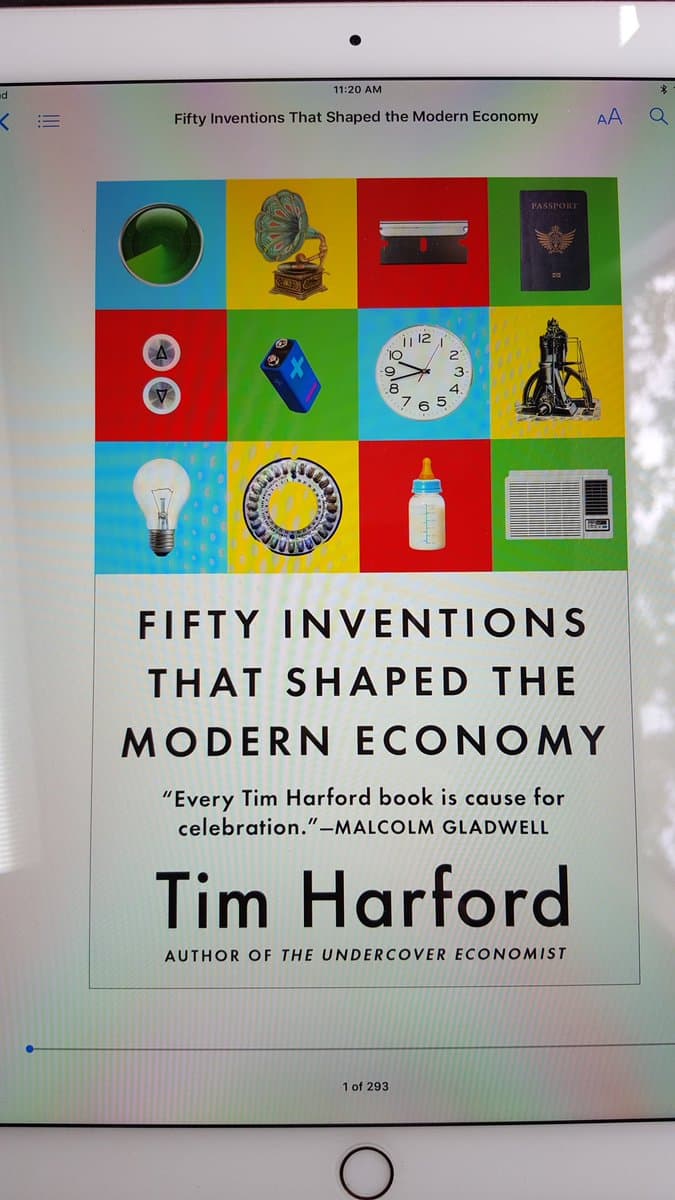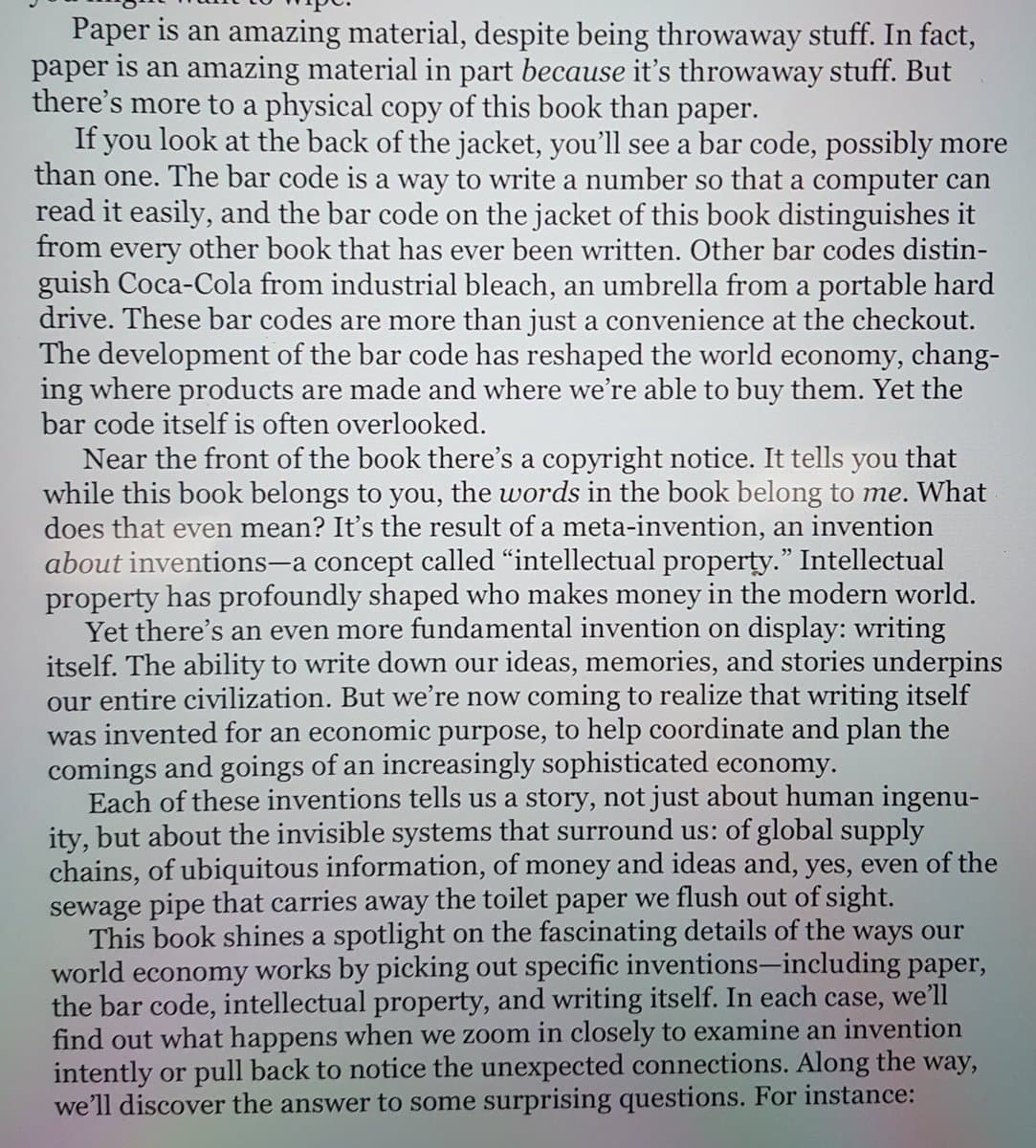🧵 View Thread
🧵 Thread (17 tweets)

#nowreading 50 things that shaped the modern economy, Tim Harford https://t.co/EP2sMfAmwT


Funny story: I actually had the idea to write something like this - I have the outline draft somewhere still. I wanted to understand how the most important things in the world were, and how they were made. X gamechanging products, like the Sony Walkman

Book opens with a homage to James Burke's Connections series, asks how you'd begin to restart civilization if you were amongst the survivors of an extinction event. The answer: reinvent the plow, start farming. 5-6x more yield than foraging. (This surplus invites opportunists)

Different environments evolved plows of different shapes and sizes, which in turn led to different family and social structures. Some environments enabled individualistic solo farmers, others practically forced cooperation (large, communal plows)

Grain heavy diet wasn't very good for these folks, now starved of vitamins, iron, protein. Avg height dropped 6 inches. And yet, the (unnutritious) food surplus allowed specialization. Specialized, malnutritioned soldiers were still able to drive remaining hunter-gatherers away

Tim does 2 things really well: 1. Point out the different histories of the components of a single object (the book), turning an everyday object into a wonderland of possibility 2. Find interesting chains of cause-and-effect relationships & invert them into compelling mysteries https://t.co/glClEvCT5Q


"The pleasure car is the travelling representative of a man's taste or refinement. A dilapidated pleasure car, like a decrepit horse, advertises that the driver is lacking in funds, or pride." - Charles C Parlin, OG market researcher

Air-conditioning was invented initially not for human comfort, but to control humidity for a printing company, then other industrial clients (textiles, razors). Then the theater, where nobody went on hot summer days. Carrier called it the Weathermaker

It took 50yrs for factories to transition from steam power to electric power, even though it was cleaner, safer, more efficient. Why? Existing systems were optimized for the former - you can't just swap A for B, you also need to change the architecture, production line, workers

Grocery manufacturer representatives argued with their food chain counterparts for about 5 years - non-stop meetings - to come to an agreement on a Universal Product Code. Grocers wanted 11 digits, Chains wanted 7 digits. The CEOs got involved. Bar codes today have 12 digits

The United Fruit Company was cosy with Guatemalan dictator Ubico. He let them own the best farmland, cheap. The Guatemalans overthrew Ubico. UFC didn't like this; got a PR agency to smear the popular leader as a dangerous communist. CIA got involved, ousted him. Banana republic.

Elevators move almost 1B people a day. China installs 700,000 new ones a year. They allow dense urban settings with a modest environmental footprint; subways wouldn't make as much sense without them. We expect to wait less than a minute for them. They're 10x safer than escalators

1977: Stanford researchers were abt to present their work on public-key cryptography when the NSA warned them it would be legally equivalent to exporting nuclear arms to hostile foreigners. The genie was let out of the bottle, & it's what keeps your credit card details safe. Ish.

Railway Mania in 1830s Britain - many speculators plowed their savings into proposed new routes, some which were never built at all. The railway company faked their accounts. The actual railways were ultimately a success; the financing was a disaster. Bubble collapsed in 1850.

The word "incorporate" means "take on bodily form". Corporations are legal concepts. Prior to LLCs, investors were personally liable for everything the biz did. Elizabeth I kicked them off with EIC, then New York followed. (On retrospect, they were pretty much summoning demons)

"I have to be diplomatic with our clients, but I don't have to be diplomatic with you bastards!" - James McKinsey, management consultant. In 1999, New Yorker described his young Ivy League hires as SWAT teams of business philosopher-kings, parachuting into companies around the 🌏